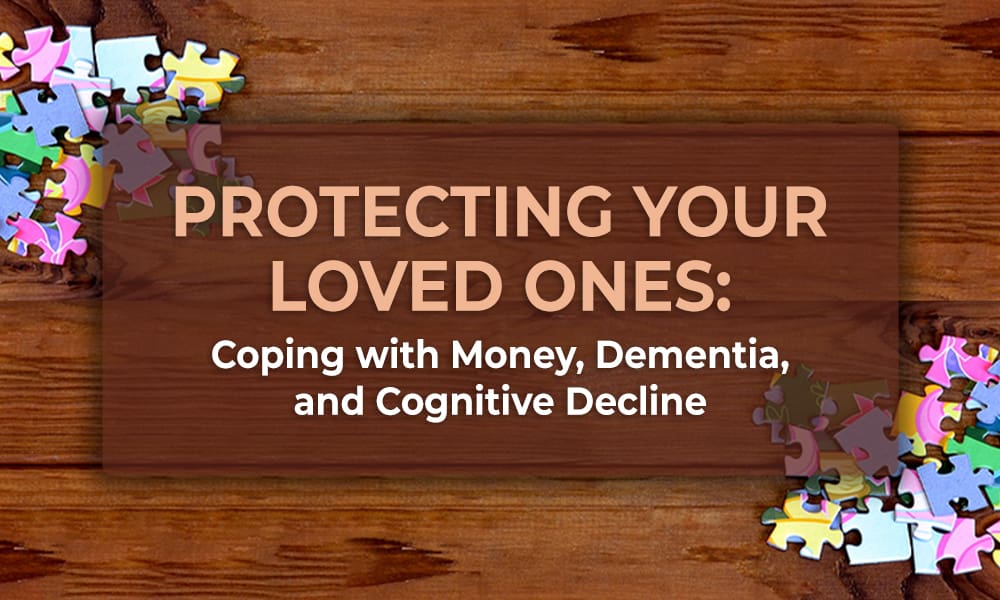It starts with simple memory loss, which we dismiss as “senior moments.” Then, it evolves into difficulty with familiar tasks, forgetting words, confusion and disorientation.
Cognitive decline is ruthlessly pervasive in America today. According to the Alzheimer’s Association, more than 6 million Americans are living with Alzheimer’s and related dementia. By 2060, that number is expected to rise to nearly 14 million.1
More and more of us are caring for aging loved ones that are coping with cognitive decline. Naturally, this creates concerns about their well-being, including their finances. It’s important to recognize the signs and take steps to protect them personally and financially.
Signs include:
- Memory lapses: Forgetting important financial details, account numbers, or recent conversations can hinder money management.
- Unusual decisions: Risky investments, impulsive purchases, or unexpected transactions could signal impaired judgment.
- Disorganization: Misplaced bills, missed payments, or cluttered financial records could create more confusion.
- Confusion: Struggling to understand financial statements, investments, or plans can cause anxiety and stress.
- Behavioral changes: Unusual behavior like increased agitation, anxiety, or mood swings could be an opportunity to visit a neurologist.
It is important to offer support in a kind manner. Avoid judgment, accusations, and anger. It all begins with a simple question: How can I help?
- Open communication: Talk openly and regularly about finances, listening to their concerns, and monitoring their well-being.
- Document important information: Clearly outline their financial situation, including investments, debts, and goals, for future reference.
- Consider a trusted helper: Discuss appointing a Power of Attorney for finances, someone they trust to handle their money if needed.
- Involve the family: Create a supportive network by informing family members and discussing potential scenarios.
When someone you love is showing signs of dementia and cognitive decline, it can feel overwhelming. The good news is that you aren’t in this alone. Feel free to reply to this email so that we can work together to provide education, support, and personalized advice. Remember: The helpers deserve help too!
By staying informed, taking action, and seeking support, you can play a crucial role in protecting your loved ones’ financial security and well-being.
![]()
Did you know?
70% of individuals will require long-term care in the future2.
This information is not intended to be a substitute for specific individualized tax advice. We suggest that you discuss your specific tax issues with a qualified tax advisor.

